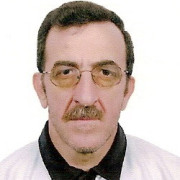
Rahmoun Abdellatif
Work place: SBA University, Sidi Bel Abbès, 22000, Algeria
E-mail: Rahmoun_abdellatif@yahoo.fr
Website:
Research Interests: Computer systems and computational processes, Neural Networks, Computer Architecture and Organization, Systems Architecture, Data Structures and Algorithms
Biography
Rahmoun Abdellatif is a PhD in computer science since 1998. He has been teaching as an assistant professor at the University of Sidi Bel-Abbes up to 2001. He has been enrolled at king Faisal University (Saudi Arabia) as an associate Professor for eight years. In 2009, He went back to the University of Sidi Bel-Abbes in Algeria, where he got his degree of professor in 2012, and where he is still working. He has been and still being involved in several teaching and research activities in the area of artificial intelligence such as: artificial genetics, neural networks, fuzzy logic and fuzzy systems, hybrid intelligent systems, genetic programming… His works are published in several international research journals as well as presented in conferences all around the world.
Author Articles
Genetic Centralized Dynamic Clustering in Wireless Sensor Networks
By Mekkaoui Kheireddine Rahmoun Abdellatif Gianluigi Ferrari
DOI: https://doi.org/10.5815/ijcnis.2015.08.01, Pub. Date: 8 Jul. 2015
In order to minimize the energy consumption involved by communications in wireless sensor networks, the use of clustering has proven to be effective. The problem remains to determine the number of cluster-heads, and their distribution in the network to ensure minimal energy consumption and better coverage networks. Unlike Low-Energy Adaptive Clustering Hierarchy algorithm which fixes in advance the number of cluster-heads, and do not guarantee the coverage of the entire network, in this paper, we proposed a genetic centralized dynamic algorithm (GA)-based clustering approach to optimize the clustering configuration (the number of cluster-heads, their distribution and the cluster-members) to limit node energy consumption and the best coverage. The obtained simulation results show that the proposed technique overcomes the Low-Energy Adaptive Clustering Hierarchy algorithm.
[...] Read more.Other Articles
Subscribe to receive issue release notifications and newsletters from MECS Press journals